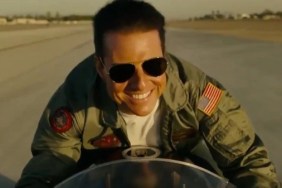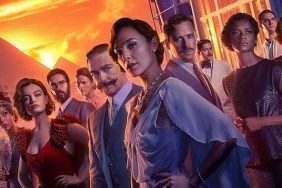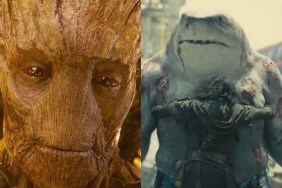“Du Doppelgänger! Du bleicher Geselle!
Was äffst du nach mein Liebesleid,
Das mich gequält auf dieser Stelle,
So manche Nacht, in alter Zeit?”
-Heinrich Heine
As we learned on the last episode of The B-Movies Podcast, the story of the next Muppet feature film (set to be titled Muppets… Again!) will pit our beloved and well-known Muppet hero Kermit the Frog against a Russian adversary named Constantine who just happens to look exactly like Kermit. No doubt, hijinks will ensue. I was fond of the last Muppet film, released in theaters in 2011, and I actually have something of a soft spot for the Muppets in general, meaning I’ll enjoy watching this next film, even if it ends up being of dubious quality. I feel that The Muppets, very much like the characters from Peanuts, possess an ineffable purity that can never be touched by the gross commercialism or stupid stories that our heroes often find themselves thrust into. We’ve all seen Evil Twin stories before, and they are often contrived. Nonetheless, let’s see what the Muppets do with it.
Musing on it for a second, I’m actually astonished at the number of evil twins I’ve seen in movies and on TV over the cartoon-laced run of my lifetime watching superhero ducks and mutant turtles. The appearance of an evil twin was one of three stories that cartoon writers always cracked out at least once over the course of a series; the lead character would, through whatever plot machinations that were required, face off against an evil version of themselves, and evil version that was often dressed in chromatically negative colors and sporting angry eyebrows. The other two stories alternately involved a camping trip, or oddly, being shrunk down to a tiny size.
Movies can sometimes be brusque and thuddingly forthright about dusting off the oft-hammered Evil Twin trope. It’s a storytelling notion that goes back literally millennia, and many screenwriters will fall back on it sooner or later; how long before a high-profile superhero move has an evil twin in it? Oh wait. Spider-Man 3 already kinda did. Despite how clichéd the premise is, however, there is something inherently interesting about the Evil Twin. How would you – a largely good person with good intentions – react to a duplicate of yourself? Your existential sense of identity would fly out the window, wouldn’t it? And then what if that duplicate was just like you, only morally bankrupt? Now your morals are out of the window with your identity. Complex questions all wrapped up in a fun and familiar fantasy premise.
There are many, many, many movies with Evil Twins in them. So many, you could fill a section in a video store (or create an entire Netflix category, to use a more up-to-date idiom). There are so many, in fact, that William “Hot Lips” Bibbiani and I have decided to devote an entire B-Movies Extended article to a list of them. Here are some of my favorite Evil Twins from feature films. A warning; I tend to skew weird.
Elliot Mantle
From Dead Ringers (dir. David Cronenberg, 1988)

David Cronenberg has always been largely preoccupied with the horrific mechanics of the body, and how our minds find ways of compensating for our bizarre mucilaginous organs and inexplicable appetites, often by juggling us very close to outright chaos and madness. The inward mind and the outward chaos are at constant interplay in most of Cronenberg’s movies. It should only make sense, then, that he should make a movie about gynecologists at some point in his career. In a powerhouse performance, Jeremy Irons plays a pair of twin gynecologists in Cronenberg’s supremely uncomfortable 1988 film Dead Ringers, often considered the director’s first proper hit. Beverly Mantle is the more levelheaded of the two, and spends most of his time listening in a cloud of mild jealousy about the sexual conquests of his far more charming brother Elliot. Beverly is the one who eventually unravels, partly because of his heartbreaking and obsessive affair with an actress, but largely because of the subtle pressure Elliot has been dangling over his ever since the two were young. He’s Beverly’s saving grace, but, in a way, also his worst detriment.
Oswald and Oliver Deuce
From A Zed and Two Noughts (dir. Peter Greenaway, 1985)

It’s difficult to say which of the twins in Peter Greenaways supremely odd film A Zed and Two Noughts is the evil one. Brian and Eric Deacon play Oswald and Oliver, a pair of twins who work at the local zoo. In a poetic accident, the two brothers lose both their wives in the same car accident. This throws them into a depression, and they become obsessed with notions of physical decay. It’s not long before the twins are stealing animal corpses from the zoo and filming their putrefaction in time-lapse photography. Which we get to see. The twins also begin having a two-on-one sexual affair with the woman responsible for the deaths of their wives – a woman who has lost a leg in the accident and is thinking of having the other amputated “for symmetry’s sake.” Eventually, the twins are sewing their jogging suits back together, and goading each other into weirder and weirder rot experiments. The film’s finale involves poison and thousands of snails. There are no films like this one. The twins spend a lot of the film encouraging each other, but I also sensed a form of subtle inter-sabotage at work. Like they are taking turns being evil. Which one is evil? How can you tell?
Dr. Jeffrey Korchek
From Schizopolis (dir. Steven Soderbergh, 1996)

Steven Soderbergh’s low-budget experimental flick Schizopolis is a masterpiece of absurdist humor. The film starts with a few familiar sitcom tropes, but is constantly extruding them through a near-intellectual, wholly surreal Play-Doh Fun Factory of deconstruction-by-way-of-a-sugar-rush. Soderbergh plays a callow desk jockey named Fletcher Munson who is assigned to write an inspiring speech for a vague-yet-powerful self-help guru, but is constantly stymied by his failing health, flagging marriage, bizarre sexual fantasies, and overpowering adolescent boredom (in one of the film’s funniest scenes, Munson simply makes faces at himself in a mirror for a few minutes). His wife, he learns later, is having an affair with the local dentist Jeffrey Korchek. The kicker? Korchek is also played by Soderbergh. And while this may seem like a clever Buñuel-like ode to shifting identites, its meaning is undercut by the line of dialogue “I’m having an affair with my wife.” These two men are equally bored twin halves of the same person. Jeffrey is not really “evil,” but he is the one who… uh… y’know what? Just see this film for yourself. Your brain will thank you.
Pete Dayton and Alice
From Lost Highway (dir. David Lynch, 1997)

Easily David Lynch’s best-looking film, Lost Highway is an awesome (and oft-maligned) phantasmagoria of shifting identities, sexual double-talk, twisted crime, the vulnerability of voyeurism, and too many other things to really mention here. Although ambitious, gorgeous, twisted, and complex, Lost Highway is still most often lambasted as being dire, dark, confusing, and (at worst) self-indulgently meaningless. I defend the film; Lynch outdoes himself with the dank visuals and twisted dream logic of interlacing identities. Bill Pullman plays a jazz musician named Fred Madison who has a very cold and awkward relationship with his wife (Patricia Arquette) who may or may not be having an affair. One day he watches a videotape left on his doorstep, and he learns that he may have murdered his wife. When in prison, he physically transforms (!) into a character named Pete Dayton, played by Balthazar Getty. Pete is a freewheeling teen with odd ties to a local mob boss and a very sexual relationship with a gal named Alice, girlfriend of said mob boss, and also played by Patricia Arquette. Much of the film is devoted to the crime-centric relationship shared between these two dark mirror twins of the characters we already knew. These two are thieves and murderers. Are they twins, or alternate personalities? Whose identity is whose?
Mechagodzilla
From Godzilla vs. Mechagodzilla (dir. Jun Fukuda, 1974)

Mechagodzilla is a f*cking pimp.
From the Desk of William Bibbiani:
There’s one thing CraveOnline’s vaunted “Professor” (aka “Hey, You In The Bushes!”) forgot to mention in his otherwise accurate screed about the “Evil Twin” phenomenon in storytelling, and that’s the actors. Not content to merely star in a movie, these actors are easily tempted by the possibility of playing two separate characters simultaneously. You could argue that it’s an ego trip, or even just something impressive for their demo reel, but I suspect the reason mostly boils down to “because it’s cool.”
As for writers, we like evil twin stories because it’s a concise, albeit blunt allegory for the duality of man, woman or Kermit. We all have multiple sides to our personalities – as Walt Whitman wrote, “I am large, I contain multitudes,” although I suppose he could have been talking about stomach parasites – but illustrating that inner conflict in a visual medium can be a pain in the tuckus. Robert Louis Stevenson had the rather clever idea of that duality manifesting itself as a separate being, sharing the same body in The Strange Case of Dr. Jekyll & Mr. Hyde, a repeatedly filmed novella. The 1931 movie version won Fredric March an Academy Award for Best Actor, and is one of the few horror movies to crack the “Big Five” Oscar categories, at least as an honest-to-goodness winner.

But Dr. Jekyll & Mr. Hyde didn’t look like the same person. They “were” the same person, which I’d argue is a slightly different genre altogether (Multiple-Personality Disorder movies include films like Me, Myself & Irene, and a bunch of movies that use it as a big climactic twist; I’m sure you can think of a few off the top of your head). Another character altogether who just happens to have the same appearance is pretty random, if you think about it, and I imagine it doesn’t come up in real life very often. Dramatically, perhaps the biggest difference in between the Jekyll & Hyde subgenre and the Evil Twin subgenre is external impact of the “evil” version of the hero. The supporting cast – friends, family and even antagonists – are forced to respond to the person they supposedly know, now behaving in an entirely different manner. Usually they’re confused. Sometimes they’re appalled. Often they’re titillated by the “new” version of the character, and kinky sex abounds. It’s an anxiety-raiser, this possibility that someone else could live your life better – or at least sexier – than you can. It also allows for countless comedic possibilities, in which everyone runs into everyone else thinking they’re someone else, having follow-up conversations without realizing they’re talking to someone who doesn’t know what’s going on, and so forth. Structurally, that can be a bitch, but when done right it’s comedy gold.
But there are dozens of variations on the evil twin storyline, and Witney has already picked some fine examples. (I wish I’d thought of Mechagodzilla. Such a pimp.) What follows are some of my favorite movies that utilize the trope, but there are dozens more great examples out there. What’s yours? I’d be curious to hear which variations on the theme worked best for you.
Joseph Curwen
From The Resurrected (dir. Dan O’Bannon, 1991)

The Resurrected is one of my favorite underseen horror movies. Directed by Dan O’Bannon (who is perhaps most famous for writing the original Alien), the film is an adaptation of a novella by famed author H.P. Lovecraft, The Case of Charles Dexter Ward, and stars “Lost’s” John Terry as a private detective hired by an unhappily married woman to investigate the strange behavior of her husband, Charles, played by Chris Sarandon. Charles recently discovered that his ancestor, Joseph Curwen, looked just like him, and was an alchemist who believed he had discovered the key to eternal life. But he underestimated the amount of blood and meat necessary to keep the body going. You’ll see some of the twists coming a mile away, but that just adds to the suspense while you wait for the rational protagonists to catch up. By the time the heroes are trudging into Curwen’s pitch-black underground catacombs, you’ll be biting your nails. By the time the uncanny makeup effects come to light, you’ll be biting your fingers off. Chris Sarandon is great in both roles.
Bad Ash
From Army of Darkness (dir. Sam Raimi, 1992)

Sam Raimi’s original Evil Dead movies transitioned from genuine horror, to mad horror comedy, to flat out adventure comedy by the time Army of Darkness came out in 1992. Bruce Campbell once again stars as Ash, the perpetually screwed womanizer who winds up back in the Middle Ages, fighting the undead to retrieve the fabled Necronomicon and cast a spell to return back home. Along the way, he’s attacked by dozens of miniature versions of himself, one of whom jumps right down his throat and begins growing – full-sized now – out of Ash’s body. It splits in too, announces itself as “Bad Ash,” and does a little dance before Good Ash shotguns him in the face. Before long, Bad Ash gets up and builds an army of zombies and skeletons to wage war on King Arthur and… and it’s all a little silly, isn’t it? But Bruce Campbell is having a hell of him time swordfighting himself on the parapets of Camelot, and so will you if you’re one of the handful of movie enthusiasts who hasn’t seen Army of Darkness yet.
President Bill Mitchell
From Dave (dir. Ivan Reitman, 1993)

Dave is a neat twist on the old evil twin dynamic. Rather than tell the story of a good man whose life gets turned upside-down by the introduction of a bad version of himself, Dave is basically the opposite. President Bill Mitchell, played by Kevin Kline, needs a double of himself so he can sneak off and bang his secretary (a young Laura Linney), but when he has a debilitating stroke, his underlings convince the double, Dave Kovic (also played by Kevin Kline), to take his place. Dave enters the president’s crappy life half-blind, and winds up fixing his marriage to Sigourney Weaver and then practically fixing the whole country, because he didn’t go through the whole political rigmarole that seems to inevitably corrupt anyone, no matter how decent, by the time they rise to prominence.A bad guy’s life fixed by his “good” twin. That’s novel, you gotta admit. Dave is an almost naively optimistic story – the term “Capraesque” has rarely felt so appropriate – but Kline is absolutely wonderful and the screenplay, by future Hunger Games director Gary Ross, absolutely sparkles.
Dark Superman
From Superman/Doomsday (dirs. Lauren Montgomery, Bruce Timm & Brandon Vietti, 2007)

Warner Bros. seems to have trouble getting good live-action DC superhero movies off the ground, but they’ve been making good, and occasionally even great straight-to-video animated films for years. Their first glossy standalone effort, Superman/Doomsday, deserves a bit more attention than it gets. Loosely adapting the story from the Death and Return of Superman comics, the story kicks off when Lex Luthor accidentally unleashes the unstoppable alien menace Doomsday. After a cataclysmic fight with Superman (which would be the coolest thing ever filmed if it were in live-action), the hero dies, and the world mourns… until he returns. But this is not the same Superman. He’s a clone of the original, made by Lex Luthor, who beats him to a pulp every night with kryptonite gauntlets while screaming, “WHY DID YOU LEAVE ME?!” Damn, that’s messed up. The real Superman eventually returns just after his clone goes horrifically rogue, and the film’s second, equally awe-inspiring showdown finally begins. DC Animated has produced better movies since (I think Batman: Under the Red Hood may be the highlight so far), but Superman/Doomsday was a great start.
Eli Sunday
From There Will Be Blood (dir. Paul Thomas Anderson, 2007)

There Will Be Blood never calls attention to the fact that it’s an evil twin movie. Paul Dano shows up early in the period drama to tell the die capitalist Daniel Plainview (Daniel Day-Lewis) about the oil underneath his family property in Little Boston, California. Plainview arrives in town to find Paul Dano, now a preacher, protesting the oilman’s plans for the community. They’re identical twins, but There Will Be Blood never really discusses it. It’s almost like Paul Sunday called on Daniel Plainview just so Eli Sunday can wrestle with him on moral grounds. Plainview’s struggles against Eli Sunday lead to some tour-de-force acting on both sides, particularly when Eli finally gets Plainview into his congregation and forces the atheist to submit to his own guilty conscience, for Plainview’s financial gain and Eli’s simple schadenfreude. In the end, hypocrisy rears its head, and Plainview’s personal misery gives way to amoral superiority over his foe. Then, and only then, he’s finally finished.
William Bibbiani and Witney Seibold are the co-hosts of CraveOnline‘s B-Movies Podcast and the co-stars of The Trailer HItch. Follow them on Twitter at @WilliamBibbiani and @WitneySeibold.








